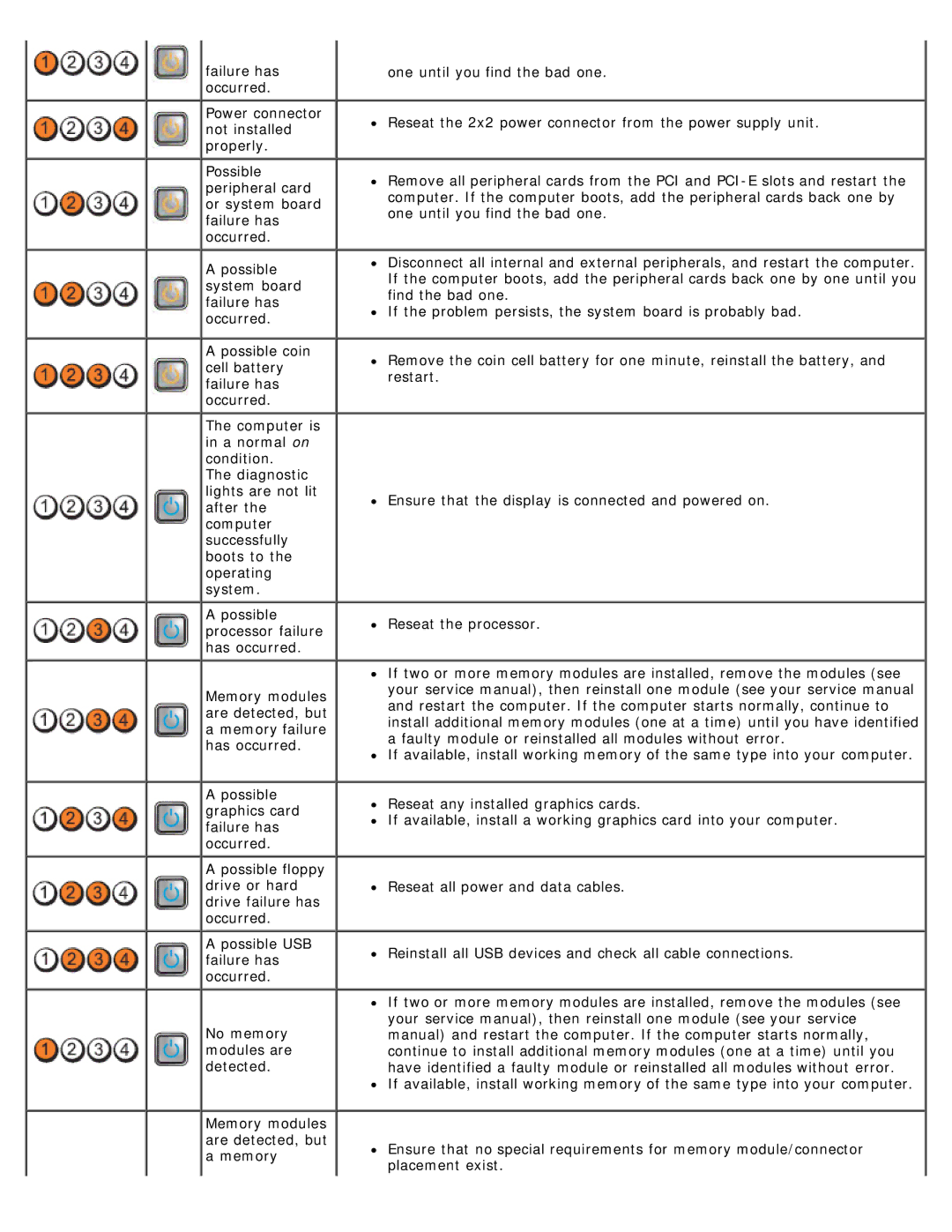
failure has occurred.
Power connector not installed properly.
Possible peripheral card or system board failure has occurred.
Apossible system board failure has occurred.
A possible coin cell battery failure has occurred.
The computer is in a normal on condition.
The diagnostic lights are not lit after the computer successfully boots to the operating system.
Apossible processor failure has occurred.
Memory modules are detected, but a memory failure has occurred.
Apossible graphics card failure has occurred.
A possible floppy drive or hard drive failure has occurred.
A possible USB failure has occurred.
No memory modules are detected.
Memory modules are detected, but a memory
one until you find the bad one.
Reseat the 2x2 power connector from the power supply unit.
Remove all peripheral cards from the PCI and
Disconnect all internal and external peripherals, and restart the computer. If the computer boots, add the peripheral cards back one by one until you find the bad one.
If the problem persists, the system board is probably bad.
Remove the coin cell battery for one minute, reinstall the battery, and restart.
Ensure that the display is connected and powered on.
Reseat the processor.
If two or more memory modules are installed, remove the modules (see your service manual), then reinstall one module (see your service manual and restart the computer. If the computer starts normally, continue to install additional memory modules (one at a time) until you have identified a faulty module or reinstalled all modules without error.
If available, install working memory of the same type into your computer.
Reseat any installed graphics cards.
If available, install a working graphics card into your computer.
Reseat all power and data cables.
Reinstall all USB devices and check all cable connections.
If two or more memory modules are installed, remove the modules (see your service manual), then reinstall one module (see your service manual) and restart the computer. If the computer starts normally, continue to install additional memory modules (one at a time) until you have identified a faulty module or reinstalled all modules without error. If available, install working memory of the same type into your computer.
Ensure that no special requirements for memory module/connector placement exist.
